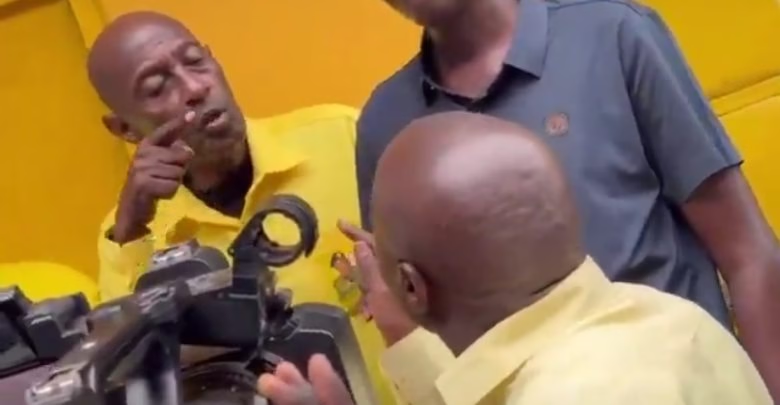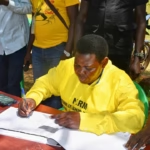Tension was palpable in Lwemiyaga constituency on Thursday as two political titans — incumbent MP Theodore Ssekikuubo and retired Brigadier Emmanuel Rwashande — clashed openly in front of stunned voters. The confrontation, captured on camera, unfolded at an NRM polling station, laying bare the personal animosity and political stakes driving this year’s race for the 2026 flag bearer seat.
In a moment charged with emotion and defiance, Rwashande lashed out at his rival.
“Your intimidation is going to stop. That impunity you have been putting on people is going to stop,” he said, his voice rising with fury.
Ssekikuubo, never one to back down, shot back: “You must wake up. You are no longer in the military. You must wake up.”
Attempts by polling officials to calm the two were fruitless. The war of words quickly spiraled into a flurry of insults.
“You are an idiot. You are just an idiot,” Rwashande snapped.
Ssekikuubo, visibly unshaken, replied sharply: “Shape up.”
For onlookers, the exchange was more than political theater — it was a glimpse into the intensity, bitterness, and history that have come to define politics in Lwemiyaga.
But the shouting match is only the surface of a much darker story.
Just days earlier, the constituency was rocked by tragedy. A young supporter of Ssekikuubo — 25-year-old Fred Ssembusi — was shot dead during a campaign rally. The bullet, fired by soldiers from the Uganda People’s Defence Forces (UPDF), was reportedly intended for Ssekikuubo himself. It struck Ssembusi instead, ending his life instantly. Ssekikuubo survived — but just barely — with a gunshot wound to one of his fingers.
The shock of the incident reverberated through the community. Dr. Tanga Odoi, chairperson of the NRM’s electoral commission, responded by suspending all campaign activities in the area. The tragedy, which some have described as a political assassination attempt, forced Ssekikuubo to call off his rallies and seek police protection.
For locals, these events stir painful memories. Violence during elections is not new in Lwemiyaga. The wounds of past confrontations — physical and emotional — remain fresh.
“This isn’t politics anymore,” one voter murmured. “This is war in suits.”
As the 2026 general elections draw closer, many are left wondering: how did a vote meant to reflect the people’s will descend into bloodshed, fear, and raw hostility?
What began as a campaign for party leadership has become a mirror reflecting the deep cracks in Uganda’s grassroots politics — where personal rivalries, militarized influence, and the pursuit of power often overshadow the very people these leaders vow to serve.



